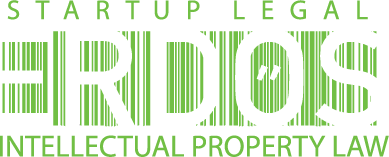Technology && (Modern || Frontier) Law Practice--The Proposal
Raina Haque and Jon Mayhugh
Earlier this year, the Executive Associate Dean of Academic Affairs of Wake Forest University School of Law approached us about teaching a course about running a high tech law practice. We looked at each other and thought, "Are we running a high tech practice?" We realized then that because our firm lives in the world of intellectual property and startups, what we consider "high tech" is relatively elevated! After thinking the proposal over and discussing it at length (as human lawyers, even high-tech ones, do), we decided to give it a go.
the legal service industry needs some of its bones reset
We run a stimulating, interactive, enjoyable practice thanks to many technological solutions that augment our ability to deliver high-quality work product quicker, and at greater value to our clients. We already act as consultants for attorneys at other law firms. A number of our own clients are in the law-related high-tech industry, and they are eager to generously contribute to our students' understanding of the epoch change that is facing the legal service industry. Our Firm's operational "secrets" are too good to keep, and thank goodness for that--the legal service industry needs some of its bones reset, in the way many other industries were disrupted in the wake of The Great Recession. We are proud to hand off lanterns to the newest generation of legal minds. We are stoked about fostering entrepreneurial thinking in our students.
Wake...embrace[s]... great rigorous, robust, interdisciplinary experiential legal education
Throughout the semester, we'll be posting about the progression of our class. In this post, we have the course proposal. I am sure that our students will be teaching us as much as we'll be teaching them. We hope some of them will join these legal tech startups, found their own startups/firms, or become leaders who help traditional law firms adapt to the new economy. Kudos to Wake Forest School of Law for joining Stanford, Vanderbilt, Harvard, Georgetown, and Duke in the family of law schools whose core administration embraces great rigorous, robust, interdisciplinary experiential legal education that reflects the new economy.
The Course Proposal:
The Great Rescission
The Great Recession was also the Great Rescission: as reputable institutional behemoths fell, so did many of the market's rule-of- thumb social contracts. No longer was the age of an institution an indicator of its resiliency, no longer was the size of an organization indicative of its productiveness, and no longer was the cost of a service positively correlated with the quality of a service. In that vein, startups cropped up and created new markets to replace inefficient markets. In the last decade, startups have disrupted many industries and markets by delivering innovative technologies and services. Many of these services empowered businesses to boost productivity in operations, marketing, services, and products. Astonishing startups successfully challenged the adage of "good, fast, and cheap: choose two," and created the gig economy. The legal market was disrupted as well, with many attorneys who were shaken out of larger law firms starting their own solo practices, taking with them clients to whom they were able to offer billable rates lower than the rate at large law firms.
challenge[...] the adage of "good, fast, and cheap: choose two,"
The tech revolution is currently disrupting the legal services market even more than the Great Recession—startups noticed that there was more to be done to challenge the inefficiencies of the legal industries. The last 5 years have resulted in new firm management, marketing, legal research, collaboration, and drafting software. These technologies have created a plethora of solutions such as firm management tools, legal research tools, legal outcome prognostication tools, collaboration tools, social media channels, e-discovery tools, and document automation. These technologies have the power to help, and potentially replace, attorneys. Smaller firms now have the ability and opportunity to rival large law firms for many areas of practice.
staking territory to conquer traditional legal market inefficiencies
These technological solutions are almost all cloud based Software as a Solution (SaaS) and Platforms as a Solution (PaaS). SaaS for legal services are enhancing the efficiency of all areas of legal practice, and supplanting much of the institutional wisdom previously believed necessary to provide high-level legal services. The power of these services will be even more pervasive in the near future. Automation--enabled by artificial intelligence, smart contracts, and blockchain technologies--will require legal minds to think in new dimensions as the very notions of security, authenticity, and performance are rapidly altering. ALL existing law firms will have to adopt these technologies and drastically change their business models within the next five years to be sustainable. New law firms and legal tech startups are staking territory to conquer traditional legal market inefficiencies and set standards for burgeoning legal fields created by bleeding-edge technologies. These systems will not only change the way attorneys practice but they will ultimately change the business model that all firms will use in the future.
Attorneys need to understand the ethical and technological frameworks of solutions
The legal tech space will be crowded and complex by the time this year's 1L class enters the workforce. In the same way that e-mail has forced the ABA and State Bars to analyze and opine on professional standards for privileged information in utilizing more modern forms of communication, the use of legal tech will require a similar, but broader, analysis. Attorneys need to understand the ethical and technological frameworks of solutions to be discerning implementers of these technologies. Legal minds with an understanding of the power and limitations of these services will have a powerful competitive advantage in the marketplace.
Syllabus:
00-Meet & Greet & Course Overview
01-Marketing & Branding
02-Data Security
03-Intake Management
04-Firm Management
05-Artificial Intelligence
06-Alternative Expert Systems
07-Automated Drafting & Review
08-Blockchain Technologies
09-Smart Contracts
10-Next Gen Litigation/E-Discovery
11-Next Gen ADR
12- Payment Systems
13- Distributed Business Model/Mentoring & Advisement

